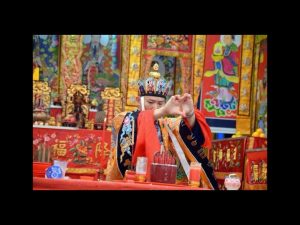Taoist Funeral Customs
Taoist funeral traditions have evolved over the centuries, from the simple religious ceremonies of early times to elaborate ritualistic ceremonies during the middle ages. One of the biggest differences between modern day and ancient Taoist funerals is that the latter tends to be more austere in its execution, using mainly white powder and red wine for the funeral service. In modern times, there are many different variations on Taoist funeral customs, depending on varying cultural factors and personal beliefs. This article looks at some examples of modern day Taoist funeral traditions.
One of the most popular taoist funeral traditions is that of the rosary. The tradition began in ancient China when tradition demanded that all able-bodied people over age four should pass a special test to be eligible for burial. If they passed the test and were then buried with a stone beside their resting place, they would be purified and their spirits able to roam freely eternally. Today, this rosary is still used today as part of some taoist funeral rites. It is said that if a departed soul can pass through the stones on the rosary and enter heaven then surely he will receive his rewards according to the Tao.
Another example of old time Taoist Funeral services is that of cremation. Although it does not fall into any specific category of ancient traditions, cremation is often used in place of the more elaborate traditional funeral services. Cremation is believed by practitioners of taoism to help remarry more easily, to aid in the healing process, and to help the deceased’s friends and family members cope with his death. Many practitioners also believe that cremation is symbolic of the transition into heaven. The body is believed to be separated from the body of the person who has passed away, and the ashes are believed to represent the light that has passed through the body.

What You Should Know About and Taoist Funeral Customs
In addition to these more contemporary funeral traditions, there are also some traditional rites of passage that are included in some taoist funerals. One of these is the chuau mein, or the leaving of the home. This ritual usually takes place after the deceased person’s parents die. This is believed to be an important part of accepting one’s fate and of preparing for one’s next life.
In addition to this, another one of the important aspects of some Chinese traditional funeral services is the singing of songs. This can be performed either by a soloist, a group of people, or a choir. There is also the yan yai, or water ceremony, which is a requirement in most Taoist religions. This ceremony involves water being poured onto the ground, symbolizing placating the waters of death, and tiring out the energy source that had been carrying the person throughout his life.
All these beliefs are based on a set of beliefs known as the Five Ancestor Principles. These are believed to originate from ancient Taoist texts, and are still used in many aspects of Chinese culture today, especially in taoist beliefs and funerals. However, some of the traditions may have their roots even further back in Buddhism, and may have their own source of beliefs different from those of taoism. Whatever the case, the basic funeral ceremonies and beliefs of taoists and chinese traditional medicine are quite similar.


